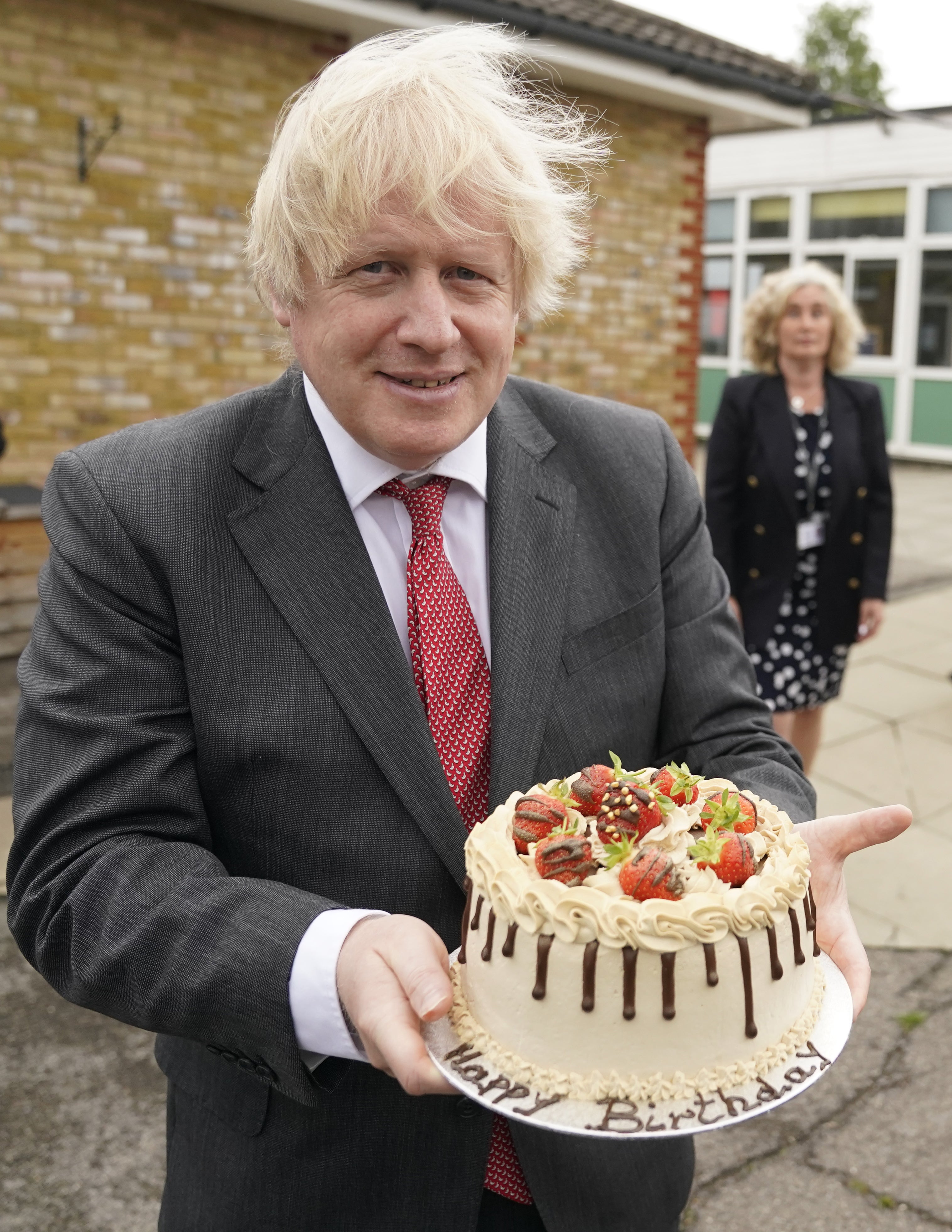Mea Culpa: Implausible plot lines and military metaphors
Questions of style and usage in last week’s Independent, reviewed by John Rentoul


Several of the plot lines in the box set called Boris Johnson converged in last week’s episode, as it was reported that a prime minister known for wanting to eat his cake and have it had been “ambushed with a cake” in the cabinet room on his birthday 18 months ago. One of the group who gathered to sing “Happy Birthday” was Lulu Lytle, the interior designer who was working on the controversially funded refurbishment of the Downing Street flat.
Naturally, Nadine Dorries, the culture secretary, rushed to support the prime minister, saying it was perfectly normal for people in an office to buy a cake on someone’s birthday. “Nadine has taken rather a lot of flack for this,” we commented. We meant “flak”, which is a contraction of Fliegerabwehrkanone, or “aviator-defence gun” in German. “Flack” is old US slang for a publicity agent. Thanks to Paul Edwards for shooting that one down.
Trebuchet watch: Military metaphors of this kind abound in writing about politics, so it was no surprise to find that we had described Johnson as “the beleaguered prime minister” in an article commenting on Grant Shapps, another cabinet minister conspicuous in defence of the leader.
Meanwhile on the sports pages we referred to “a beleaguered Spurs”, which means that they have lost a lot of games. I have said it before, but “beleaguered” should really be reserved to describe the siege of a fort, preferably one with turrets.
Battle weary: What else are we supposed to call politicians and sports teams who are up against it? “Embattled” is another cliche of early resort, and sure enough we referred to “an increasingly embattled Boris Johnson” in a report of a possible postponement of the plan to sack unvaccinated NHS workers. In this case we explained why he was embattled: “...who is fighting to save his job over allegations of lockdown-busting parties in No 10...”. We didn’t really need the “embattled” at all.
I think we should be sparing in deploying such adjectives: merely by briefly describing the problems besetting the politician or the team, we convey all the information the reader needs in order to judge the difficulty of their situation.
Variable pressure: Not only was the prime minister “embattled” in that report, he was “increasingly embattled”, an example of a related journalistic cliche, that of “mounting pressure”, usually found in the first paragraph of a news story. “The prime minister has been under mounting pressure in recent weeks over parties held in and around Downing Street during lockdown,” we said in the second sentence of a report of comments by Ruth Davidson, the former leader of the Scottish Conservatives, about Johnson’s unfitness for office.
He is under pressure, certainly, and it may be building up to a crisis that will force him out of office. On the other hand, what actually happened at the end of the week is that the pressure eased when the police investigation unexpectedly bought him time. The report would have been just as good if we had simply deleted “mounting”.
Serviceperson: In a caption on a photo accompanying a report from Ukraine, we described someone called Anastasia as a “Ukrainian serviceman”. As Gavin Turner wrote to point out, “Ukrainian soldier” would have been fine.



Join our commenting forum
Join thought-provoking conversations, follow other Independent readers and see their replies
Comments